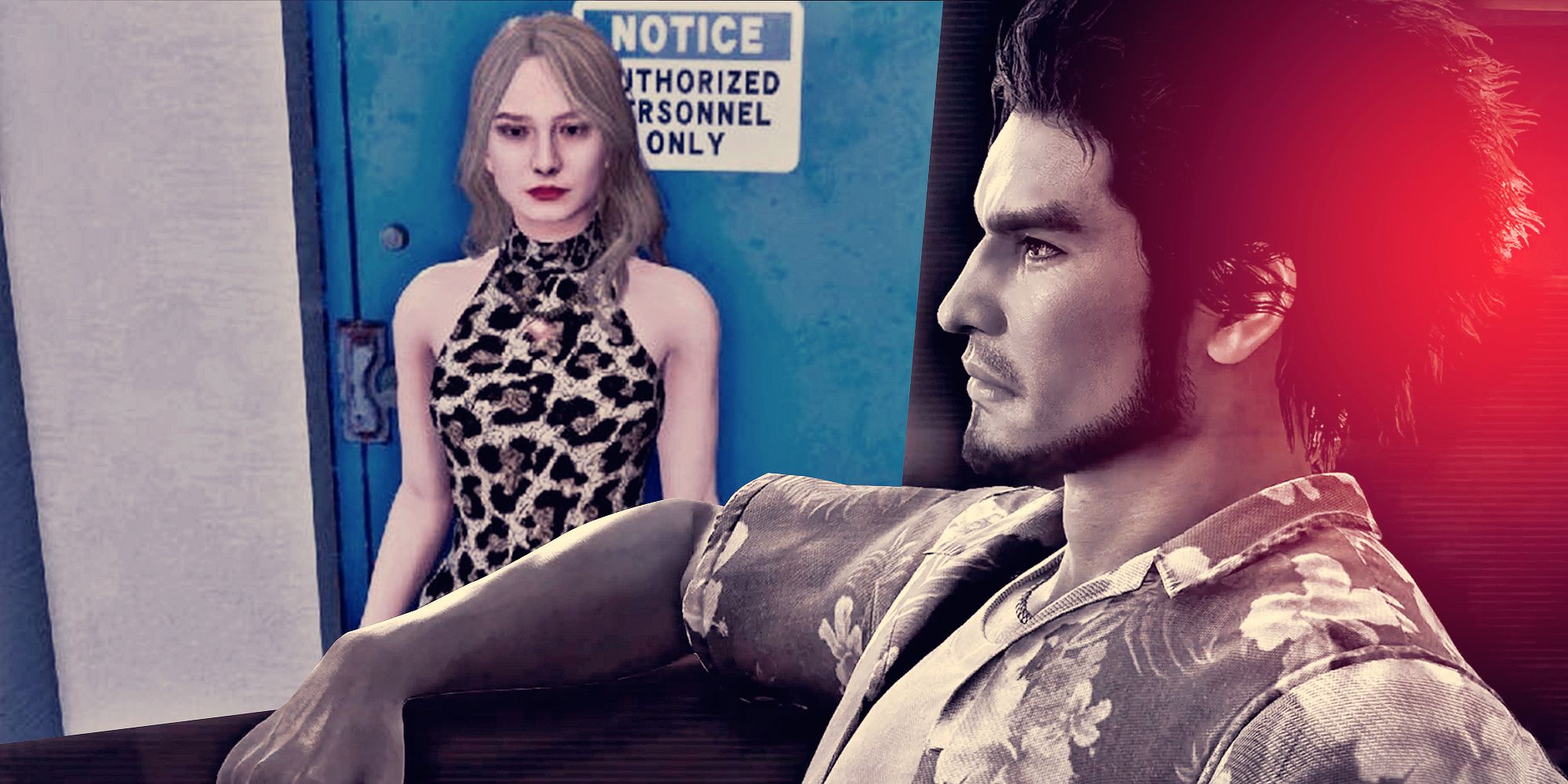
Video game portrayals of sex workers have long been distasteful and discriminatory, in keeping with the stigma against them in real life. Lots of people hold violent, hateful attitudes towards them, and we see that reflected in the media we consume and the games we play. Editor in chief Stacey Henley wrote a great piece about the portrayal of sex workers several years ago, exploring how games like GTA, Red Dead Redemption and Saints Row even allow you to inflict violence on full service workers, and imply that violence is part of every sex worker’s life. Across the board, the majority of video games fail to portray sex workers as being human beings instead of pleasure dispensers or bodies to be run over with your car.
But not the Like a Dragon series. I’ve always been surprised by how socially progressive the games are, especially when it comes to its approach to masculinity and its acknowledgement of the unique struggles that women face in society. The area in which it has historically surpassed other games the most is in its respect of sex workers. In fact, we see sex workers appearing throughout the series and written not as jokes, but as human beings.
Throughout the series, we see Kiryu treat sex workers with respect and without judgement, like soapland worker Akemi in Yakuza Kiwami and the cam girls in Yakuza 6. There’s a substory in Yakuza 0 where he helps a dominatrix polish her humiliation skills, and he never once acts like she’s doing something morally wrong. He also visits hostess bars regularly to drink and have polite conversation, in contrast to the games’ many men who go to similar venues and sexually harass the women who work there.
To be clear, hostesses aren’t exactly sex workers. Most hostess clubs in Japan have no-touching policies, though there are red-light varieties that allow touching above the waist. Unfortunately, in real life, many hostesses, especially foreign ones, are working illegally and get sexually exploited because of their precarious legal positions.
But there’s no better example than Ichiban Kasuga’s storyline. Ichiban was taken in by the manager of a soapland, which are bathhouses that often also function as brothels. He was raised by the women who worked there, and grew up in the soapland believing that his mother had been a soapland worker who abandoned him, and his birth father a client.
This was a huge factor in shaping his belief system: he understood from a young age that people aren’t defined by moral absolutes, and people may break the law to survive. That doesn’t make them bad people or unworthy of respect or humane treatment, and it’s made him one of the kindest, most optimistic video game characters I’ve ever come across.
This manifests clearly in the Bleach Japan storyline. Bleach Japan is a non-profit aiming to get rid of legal “grey zones” in Japan by “bleaching them white” – this means they target foreigners, homeless people, and sex workers. Ichiban and Nanba first encounter them when they’re assigned to clean a brothel by a shady guy at Hello Work, and the pair watch the protestors walk down the street as they chant “Prostitution’s got to go! Get out of Ijincho!”
RelatedLike A Dragon Shows Men There Is A Better Way To Be
The series models how amazing dudes can be when they don’t care about being a 'real man'
PostsThe spokesperson, Kume, stops in front of the brother and shouts through a loudspeaker that the women there are “brainwashed” and “don’t realise what they’re getting into”. The owner of the brothel comes out to yell at Kume, telling him that her employees are just women “working hard at their jobs” and asks him, “What right do you have to tell anyone how to live?” She fights back, saying, “You ever consider why a woman might do this job? Because they have needs. Some are caring for their parents, some have little kids. This is a way for them to support their families.” Naturally, Kume spins this into a spiel about how these women are unfit to raise children at all, shouting at her, “Show me a child who’s happy being raised by a whore!”
At this point, Ichiban intervenes, yelling, “I never minded it!” from the upstairs window, and moves as if to throw a trash can full of soiled tissues on them. The group flees. Later, the mama explains that most of her girls are illegal immigrants who would have nowhere else to go if she shut down, and would likely end up with “leeches” who would “skim off most of their earnings”. It’s a strong, empathetic portrayal of sex work, without flinching from the reasons that women enter the industry in the first place. It defends these women’s right to work and support their families.
But this attempt to destigmatise sex work isn’t just in the writing, it’s in the games themselves. The Night Queen job in Yakuza: Like a Dragon and Infinite Wealth has you playing as a dominatrix, and while some might find this distasteful, I think the moveset is extremely cool and doesn’t denigrate the profession at all. (The special move where you heal allies by grabbing their junk is a little off-putting, though.)
And the game features actual sex workers too. A lot of the female characters throughout the series, especially hostesses, are based on real life AV and adult actresses famous in Japan, and you can find them in erotic videos as well. Creepy? Maybe! A lot of people think it’s off-colour to have boobas in these games, and I’m not in love with the idea myself. But I do like that the game is at least ideologically consistent – sex workers are people worthy of respect, their jobs are valid and women should be allowed to make money the way they want to, and the studio pays real life actresses to feature in the games. This is, in a way, putting your money where your mouth is.
The game isn’t perfect. The characters make excuses for an objectively shitty brothel owner in Yakuza: Like a Dragon, Shun Akiyama from Yakuza 4 and 5 makes women work as hostesses in his club before he helps them out, and there are plenty of off-colour references to Japanese adult entertainment culture throughout. But across the board, the series has more or less held that sex workers deserve to work and be respected, and as wider culture gets more progressive, the games handle the contentious issue with more tact. I love that Like a Dragon represents this population as earnestly as it does. I only wish more video games would follow suit.
Like a Dragon Week
Dates March 25-31, 2024 Genre Action-Adventure Developer Ryu Ga Gotoku Studios Publisher Sega Franchise Yakuza Games Yakuza 0, Yakuza Kiwami, Yakuza Kiwami 2, Yakuza 3, Yakuza 4, Yakuza 5, Yakuza 6: The Song of Life, Yakuza: Like A Dragon, Like A Dragon: Infinite Wealth, Like a Dragon: Ishin, Like a Dragon Gaiden: The Man Who Erased His Name, Judgment, Lost JudgmentLike a Dragon Week is TheGamer's celebration of all things Yakuza/Like a Dragon, with features, interviews, and opinions on Ryu Ga Gotoku Studio's massively popular series of action-adventue brawlers.
Expand Collapse












